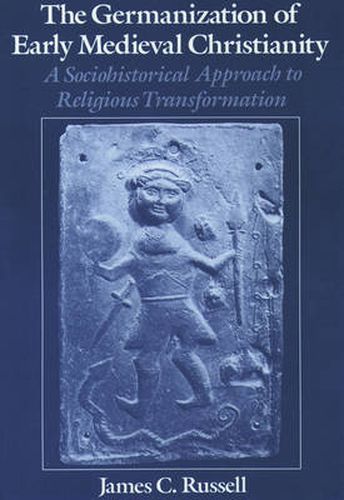Readings Newsletter
Become a Readings Member to make your shopping experience even easier.
Sign in or sign up for free!
You’re not far away from qualifying for FREE standard shipping within Australia
You’ve qualified for FREE standard shipping within Australia
The cart is loading…






While historians of Christianity have generally acknowledged some degree of Germanic influence in the development of early medieval Christianity, Russell goes further, arguing for a fundamental Germanic reinterpretation of Christianity. This first full-scale treatment of the subject follows a truly interdisciplinary approach, applying to the early medieval period a sociohistorical method similar to that which has already proven fruitful in explicating the history of Early Christianity and Late Antiquity. The encounter of the Germanic peoples with Christianity is studied from within the larger context of the encounter of a predominantly world-accepting
Indo-European folk-religiosity with predominantly world-rejecting religious movements. While the first part of the book develops a general model of religious transformation for such encounters, the second part applies this model to the Germano-Christian scenario. Russell shows how a Christian missionary policy of temporary accommodation inadvertently contributed to a reciprocal Germanization of Christianity.
$9.00 standard shipping within Australia
FREE standard shipping within Australia for orders over $100.00
Express & International shipping calculated at checkout
While historians of Christianity have generally acknowledged some degree of Germanic influence in the development of early medieval Christianity, Russell goes further, arguing for a fundamental Germanic reinterpretation of Christianity. This first full-scale treatment of the subject follows a truly interdisciplinary approach, applying to the early medieval period a sociohistorical method similar to that which has already proven fruitful in explicating the history of Early Christianity and Late Antiquity. The encounter of the Germanic peoples with Christianity is studied from within the larger context of the encounter of a predominantly world-accepting
Indo-European folk-religiosity with predominantly world-rejecting religious movements. While the first part of the book develops a general model of religious transformation for such encounters, the second part applies this model to the Germano-Christian scenario. Russell shows how a Christian missionary policy of temporary accommodation inadvertently contributed to a reciprocal Germanization of Christianity.